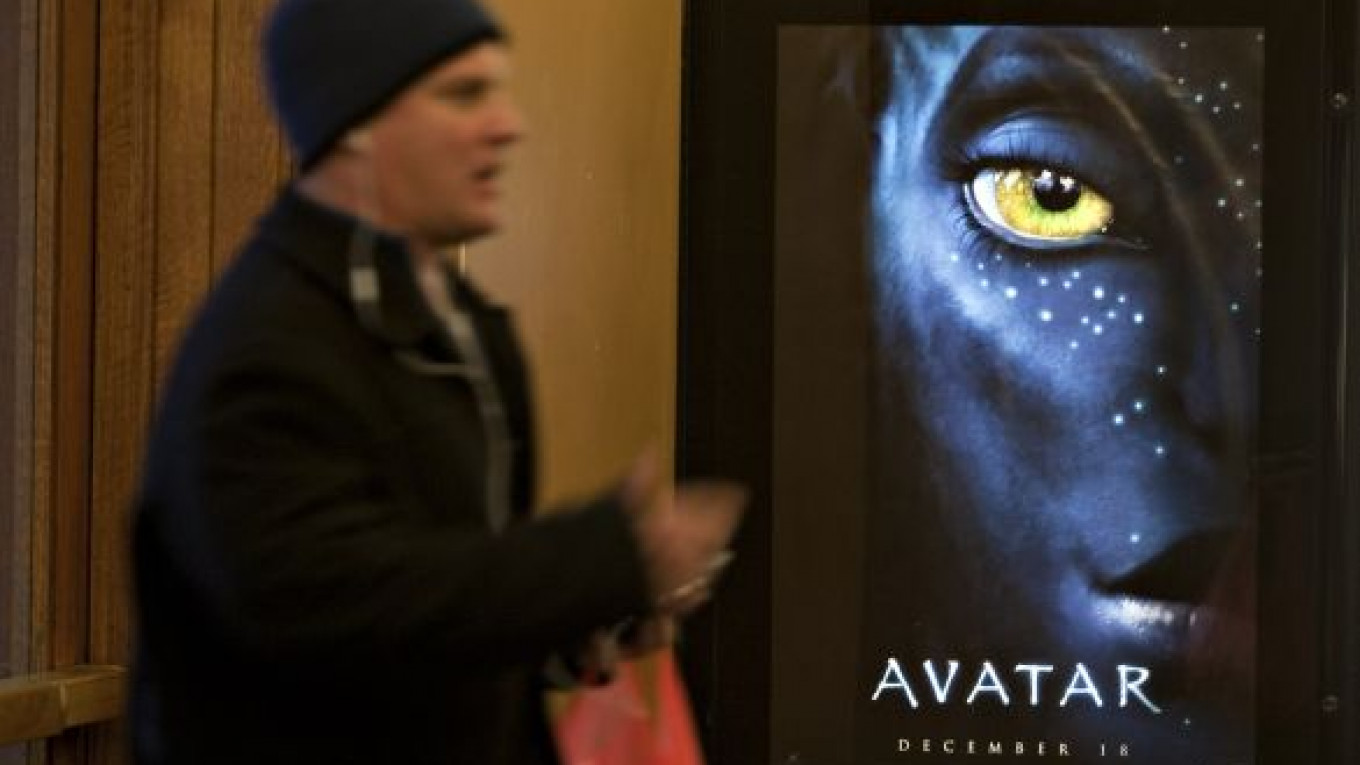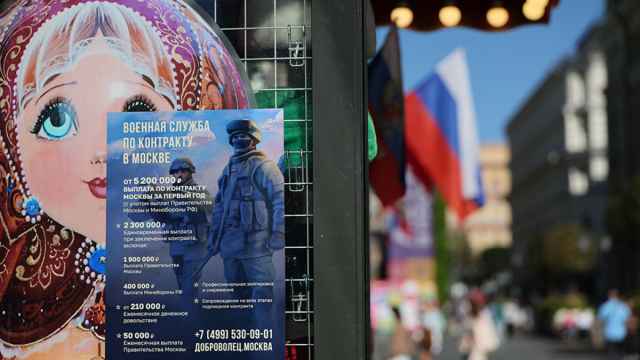A Yekaterinburg court has rejected the validity of a claim by the Russian Copyright Society for 3 percent of proceeds from a local movie theater, the first time the organization has ever lost a ruling.
The society filed a lawsuit against the city-owned Salyut cinema in July on behalf of four composers: James Horner, Harry Gregson-Williams, John Powell and Hans Zimmer, who wrote the music to the films "Avatar," "Shrek Forever," "Ice Age 3" and "Madagascar 2," respectively.
According to the magazine Russian Film Business Today, "Avatar" grossed $117 million in Russia and the CIS; "Shrek Forever" took in $51.4 million; "Ice Age 3: Dawn of the Dinosaurs" reaped $44.6 million; and "Madagascar 2" earned $40.8 million.
Under the Civil Code, composers are entitled to remuneration for public performance of their works, and the copyright society is the body authorized by the state to collect that money. This aspect of the code entered into force in 2008, and the copyright society has since contracted with television stations, radio stations, restaurants, airlines and many cinemas to collect payments.
But some theaters refused to pay the society, which responded by filing complaints to prosecutors and the courts, where it has already won some of its lawsuits.
In April, the Kinofoks cinema in the Sverdlovsk region was fined 30,000 rubles ($950), following a complaint by the copyright society that it had not paid the composers of the music in the films "The Book," "Avatar," "Sherlock Holmes" and "Black Lightning."
But the court in Yekaterinburg refused to move on the copyright society’s similar suit against the Salyut cinema. The court ruling, which was handed down last week, stated that “the Russian Copyright Society has no authority" to appear in court on behalf of Horner, Gregson-Williams, Powell and Zimmer because "no evidence was submitted showing a request by these authors to protect their rights in court."
The court further stated that the copyright society, as an institution accredited by the state, does have the right to represent the interests of all authors — including foreign nationals — but the rights of foreigners are determined in accordance with the laws of their own country.
In the United States, the rights to music incorporated into films are controlled not by the composers but by the production companies and movie studios.
A spokesman for the copyright society objected, saying the composers in question were members of the American Society of Composers, Authors and Publishers, which has signed an agreement with the society to protect the rights of its members in Russia.
The court ruling noted that neither the composers’ contracts with ASCAP, nor proof of their membership in that organization, was presented to the court.
Marina Muradov, a spokeswoman for the copyright society, declined to comment on the suit "to avoid pressuring the court." Yevgeny Dedkov, director of the law firm Yusta Aura — which defended the Salyut cinema — said he was not aware of other cases where the court refused to review the society’s claim, or where the society lost such a case.
George Sytenko, head of the Federal Service for the Protection of Cultural Heritage's copyright department, was also unaware of similar cases, but said he was sure the problem was not the authority of the copyright society — which has the right to represent the interests of all authors — but that the lawsuit was improperly presented.
"The lawsuit was filed on behalf of specific authors, and the court rightly asked to see the contracts with them,” Sytenko said. “It would have been enough for the copyright society to file the lawsuit on behalf of an unspecified number of authors, including foreign ones, for whom it is entitled to take action without a special power of attorney."
A Message from The Moscow Times:
Dear readers,
We are facing unprecedented challenges. Russia's Prosecutor General's Office has designated The Moscow Times as an "undesirable" organization, criminalizing our work and putting our staff at risk of prosecution. This follows our earlier unjust labeling as a "foreign agent."
These actions are direct attempts to silence independent journalism in Russia. The authorities claim our work "discredits the decisions of the Russian leadership." We see things differently: we strive to provide accurate, unbiased reporting on Russia.
We, the journalists of The Moscow Times, refuse to be silenced. But to continue our work, we need your help.
Your support, no matter how small, makes a world of difference. If you can, please support us monthly starting from just $2. It's quick to set up, and every contribution makes a significant impact.
By supporting The Moscow Times, you're defending open, independent journalism in the face of repression. Thank you for standing with us.
Remind me later.






